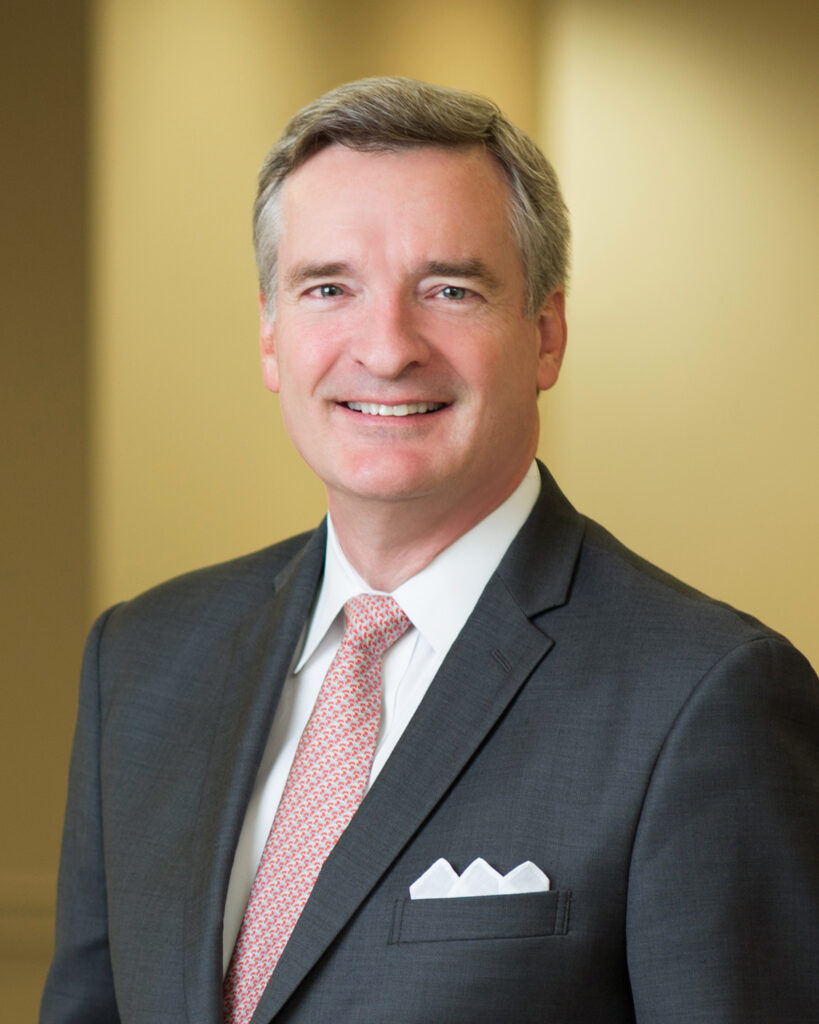During the State Bar of Texas’ annual meeting in Austin this week, Bracewell partner W. Stephen Benesh was sworn in as president-elect of the organization.

The Austin-based business litigator, who has spent his entire 36-year legal career with Bracewell, answered some questions from The Lawbook about what he hopes to accomplish during his tenure that will run from June 2024 until June 2025.
Q: What inspired you to seek a leadership role in the State Bar of Texas?
A: I decided that it was the right time to put to good use the knowledge and experience I have gained over my many years of service to the legal profession. Over the course of my legal career, it has been my honor and pleasure to serve our profession in many capacities at the local and statewide level. These roles have given me a breadth of knowledge, experience and network of relationships that will enable me to lead our profession effectively and efficiently.
Q: Have you learned any lessons from prior presidents of the state bar? If so, what are they and how will they inform your turn as the organization’s leader?
A: I am president-elect today because of the encouragement and mentorship of 2004-05 State Bar President Kelly Frels, who has been my law partner for many years. Kelly taught me the importance of giving back a “tithe” of time and talents to the legal profession that has given so much to us, and he exemplified how to lead and serve with diligence, integrity and humility, which I hope to emulate.
Q: What do you hope to accomplish during your tenure?
A: Among other things, I would like to 1) facilitate the standardization of electronic filing across all counties in Texas; 2) create a docket assistance program within the Texas Lawyers Assistance Program, a pool of volunteer lawyers who can temporarily step into the breach in an attorney’s practice when they have to step away to get the assistance they need; and 3) revamp the state bar’s website to make it easier to access and use, including the addition of a searchable online database of common questions and answers about the bar that is accessible from the website’s home page.
Q: What should other lawyers in Texas know about you and your approach to your work?
A: I am a collaborative leader who solicits, listens and considers diverse viewpoints in devising answers and solutions. I believe in building consensus and helping those I lead to grow and excel. I am a diligent, detail-oriented, hard-working leader, and I value those same traits among those with whom I work and serve. But I also believe in having fun while working. Labor without levity can be drudgery.
Q: What are some of the biggest challenges facing the legal profession in Texas right now and in the short term?
A: I am a big believer in the importance of our legal profession maintaining its right to self-regulate. I also believe that mental health and substance abuse continue to be significant issues in our profession. Finally, we must continue to face the challenge of ensuring that all Texans, regardless of income, have access to justice.
Q: Do you see ways the state bar can alleviate those challenges? Or do you see any solutions?
A: Yes, I do. With regard to self-regulation, I believe that we must be more proactive in communicating to lawyers why self-governance matters. With regard to mental health and substance abuse, we must continue to support and expand the incredible work of the Texas Lawyers Assistance Program and ensure the funding of its wellness and acute care programs. With regard to access to justice, we must proactively promote and foster a culture within our profession of pro bono service to the millions of low-income Texans who need legal assistance and remove barriers to the rendition of pro bono services.
Q: Is there anything else you’d like our readers to know about you?
A: One of my top priorities as state bar president will be to endeavor to help all Texas lawyers — regardless of who they are, what they do or where they live — better understand that the state bar is their bar, relevant and beneficial to their legal practices. One key to doing that is ensuring that the state bar and its committees and sections represent a cross-section of our profession.
